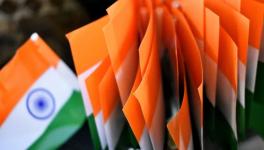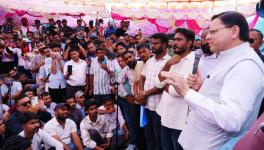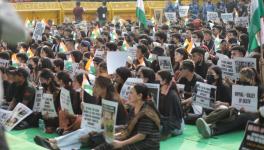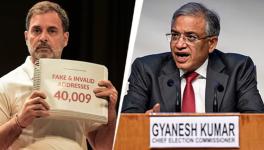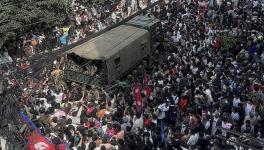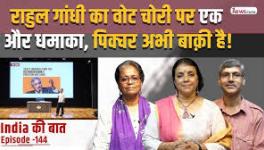CAA-NRIC: What if Kashmiri Muslims Boycott NPR
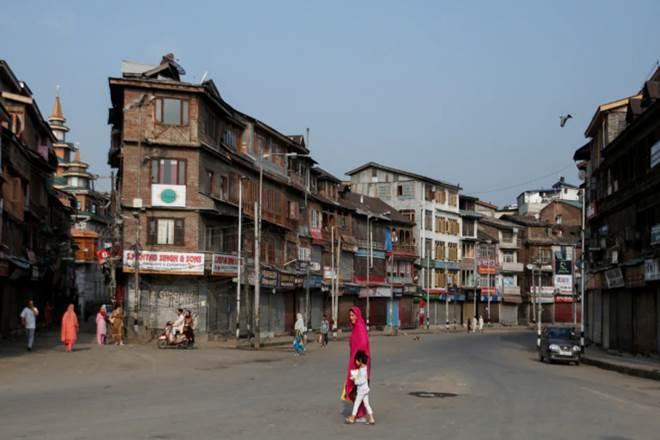
The relative silence of Kashmiri Muslims is in sharp contrast to the vociferous protests their fellow religionists around the country have launched against the Citizenship Amendment Act, the National Population Register and the National Register of Indian Citizens, the three interlinked processes that they fear are designed to deprive a large number of them of their citizenship and declare them stateless.
Their silence underlines their indifference to secure the Indian citizenship. This is an inevitable outcome of their demand that they have been denied the right to determine their political fate, in violation of the promise made to them when the then princely state of Jammu and Kashmir acceded to India, on October 26, 1947.
Prime Minister Narendra Modi should worry over the silence of Kashmiri Muslims, whose alienation and anger have further deepened by the 5 August decisions of his government to read down Article 370, hive out Ladakh from Jammu and Kashmir, and reduce its status from a state to a Union Territory.
They could, to avenge themselves against the state, heed the growing call to boycott the exercise for preparing the National Population Register, which is scheduled to be carried out between April 1 and September 30.
The NPR is mandated under the Citizenship (Registration of Citizens and Issue of National Identity Cards) Rules, as is the NRIC. These rules say that the information on every individual contained in the NPR is to be verified and scrutinised before he or she is listed in the NRIC. Those whose citizenship is deemed doubtful will get multiple opportunities to appeal, but they will be excluded from the NRIC if their appeals are struck down.
The NPR is indeed a prelude to the NRIC. However, Prime Minister Narendra Modi had said, in December, that his government did not plan to prepare the NRIC. His statement contradicted Home Minister Amit Shah, who had, in the past, repeatedly claimed that the NRIC would follow the CAA, which was enacted in early December. Nearly a week after Modi contradicted Shah, Union Law Minister Ravi Shankar Prasad said the government was committed to the NRIC, but only after taking due legal processes and consulting all stakeholders.
The contradictory voices emerging from the government has had the Opposition believe that the NRIC will be prepared after the mandatory step of compiling the NPR is completed. This is why the governments of Kerala, West Bengal and Punjab, opposed to the NRIC, have either passed resolutions against the CAA or put the proceedings for updating the NPR on hold. Twenty Opposition parties, led by the Congress, recently appealed to all state governments to suspend the NPR enumeration.
Jammu and Kashmir does not have a popularly elected government that can respond to the call to suspend the NPR exercise. The Union Territory is ruled by the Indian President through the Lt Governor. The President, who is bound to act on the aid and advice of the Union Cabinet, cannot blow against his own government, which has devised the CAA-NPR-NRIC triad.
“Kashmiris have not spoken because they are still traumatised by the August 5 decisions,” Yousuf Tarigami, the Communist Party of India-Marxist leader, said to me. But it is not that they are not following the debate on the CAA-NPR-NRIC and the brutal police crackdown on those who took to the streets against the new citizenship policy. “People here are drawing their own conclusion,” said Tarigami.
There is already a stirring among the Kashmiri Muslims. “They may be publicly silent, but the educated among them have started discussing, in private, the stance they should take on the citizenship issue,” Anuradha Bhasin, the executive editor of Kashmir Times, said to me.
These Kashmiri Muslims are heartened that the liberals outside Kashmir, who largely refrained from opposing the August 5 decisions, have joined the clamour against the CAA-NPR-NRIC. Yet their joining the protest, ironically, exerts a restraining influence on the Kashmiri Muslims. “Many among them feel that their participation in the all-India campaign against the CAA-NPR-NRIC would make it so much easier for them [the government] to demonise the protests,” Bhasin said.
They are presumably waiting to see whether the protests acquire a critical mass, particularly in the Hindi heartland, before they decide whether or not to participate in the NPR, which is widely perceived as a step to prepare the NRIC.
Withholding information for the NPR, under Clause 17 of the Citizenship Rules, 2003, invites a fine of just Rs 1,000. However, its other consequence could be severe—all those who refuse to disclose information for the NPR could have their names excluded from the NRIC, in case the government decides to prepare it. This could imply that the national identity card might not be issued to them, invariably leading to their disqualification from government jobs and access to social welfare measures of the state.
Yet a mass boycott of the NPR, in Kashmir and outside it, will cripple the NRIC, and render the national identity card redundant. “They cannot prosecute lakhs of people voluntarily opting out of the NPR, can they? The entire process will come to a standstill,” Zaffar Shah, a senior High Court advocate based in Srinagar, said to me.
Shah said the August 5 decisions have anyway hollowed out the idea of citizenship of all its meanings, as these were not an expression of the will of people articulated through their elected representatives. The Kashmiri Muslim cannot be enamoured of an empty-shell citizenship, a compelling reason for them to boycott the NPR.
The denial of citizenship to a significantly large number of Kashmiri Muslims who refuse to disclose information for the NPR will give a fillip to the movement to secede from India. “In case we are not granted citizenship, our basic aim of disentangling ourselves from India will be achieved at one stroke,” Professor Hameeda Nayeem, a civil society activist who recently retired from Kashmir University, said to me with a chuckle.
This does not mean that India’s sovereignty over Kashmir will cease. It will however, give credence to the charge that India is interested in retaining the territory of Kashmir, not its people. Lakhs of stateless Kashmiri Muslims will become a diplomatic embarrassment for India, which has already alienated the international opinion with its August 5 decisions.
It seems pointless to verify the citizenship status of Kashmiri Muslims on the basis of the NPR data, as their identity has been established beyond doubt through years of military operation. As Khurram Parvez, who is the programme coordinator of the Jammu and Kashmir Coalition of Civil Society, told me, “Who we are, what we do, and where we live are all known to the Army. Every village and its residents have been marked and accounted for. Ours is a land under occupation.”
Parvez said it is a difficult task for the Kashmiris to boycott the NPR as they live in a militarised environment, where civil liberties are stifled and people are compelled to comply with government orders. “But yes, if there is a mass response to boycott the NPR, it will become a nightmare for the government,” he said.
All those who I spoke to said it is difficult to figure out what the Kashmiris are thinking, as they have chosen to bottle up their emotions over the unfolding politics and slipped into an unfathomable silence after August 5. It is a socio-psychological truism that pent-up feelings suddenly burst out, adopting varied forms of expressions.
One of these could well prompt the Kashmiris to not participate in the NPR exercise. “They are very skilled in organising boycotts and shutdowns, evident from their many successful campaigns in the past,” Bhasin said. Hers should be a warning to the Modi government that seems to have not thought through the consequences of conducting a nationwide NRIC, evident from the fury against the CAA-NPR-NRIC sweeping across the country.
The author is a freelance journalist. The views are personal.
Get the latest reports & analysis with people's perspective on Protests, movements & deep analytical videos, discussions of the current affairs in your Telegram app. Subscribe to NewsClick's Telegram channel & get Real-Time updates on stories, as they get published on our website.









